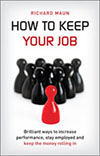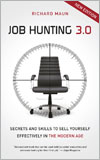better business blog
Tips and stories to add value to you and your organisation

Succession Planning
I’m so pleased that I’m not a member of the Royal Family. All those hands to shake and buildings to open, it must be a fairly dull life in many ways, even if you enjoy the chauffeur driven high-security lifestyle. The Royal Family are of course the prime example of an organisation for whom the concept of succession is paramount. Throughout history it’s been a fairly dangerous subject and the cause of a number of high profile deaths, as a result of the untimely removal of a few heads here and there.
Luckily for us, organisational life, which can be equally mean and competitive, does tend to leave us with our head attached to our shoulders. Organisations, like Royals though, do need to pay attention to the issue of succession, or they may cease to exist.
In the strict sense of things we are talking about people here, but it doesn’t hurt to consider whether we wish to sell our business when we have had enough of it and want to retire. All businesses have value, even if they consist of a van, a bag of tools and a customer list. This means we always have options and would be wise to investigate them when the time comes.
From a people perspective we need to decide what our succession timescale is. Dates for retirement are becoming more fluid, but that doesn’t mean we can’t plan for the future. Once we have a timeline then the next big question is whether we are gong to hire a new person or develop existing staff into senior roles.
If we run a family business then beware. In my experience as a business coach some of the unhappiest people I’ve worked with are the second generation leaders, who inherited Dad’s factory/office/van and are keeping his dream alive for him, whilst suppressing their own ambitions. (It does seem to be a Dad-Son thing and I’m sure there are plenty of Mum-Daughter examples out there too).
Just because you love your business doesn’t mean your children will, but they can easily become trapped in it if all they’ve ever done is work for Mum and Dad. Do them a favour and don’t let them set foot in the business until they are at least 30 years old and have had external experience first. Otherwise you run the risk of making life easy for them and in doing so may well accidentally stifle their ambitions.
If the choice is to develop staff into senior positions then we need to tell them this! I’m amazed at how many secret succession plans are out there and the people in question have no idea they are being relied on to ease the MD’s path into retirement. We can share our ideas, work out sensible development plans and invest time and energy to make them come to life.
Hiring a coach, or similar, also makes a lot of sense, as key staff feel feelings too and can be much more anxious than their Director realises. Fear often gets in the way of ambition and in my experience the fear is often based on a fantasy of what might happen, rather than an objective assessment of the facts and issues. Coaching support enables people to bring their fears out into the open, where they can test them against known facts, so they can achieve their potential.
So, this week take time to sit back and think about business in the year 2027. Who is running it? What are you doing? What needs to happen to arrive in good shape in ten years time? And of course, who is going to be King? (Or Queen!)
Next week: How To Influence People
e-publishing
Click icon for details


recent posts
browse archive
books
Click cover to view details on Amazon

How to Keep Your Job
Brilliant ways to increase performance, stay employed and keep the money rolling in
Published 2011 Marshall Cavendish
208pp

Job Hunting 3.0
Secrets and skills to sell yourself effectively in the Modern Age
Published 2010 Marshall Cavendish
260pp

 RSS
RSS


